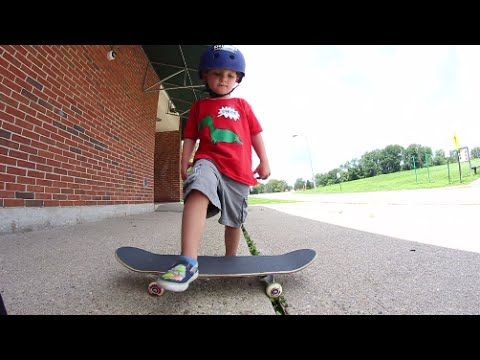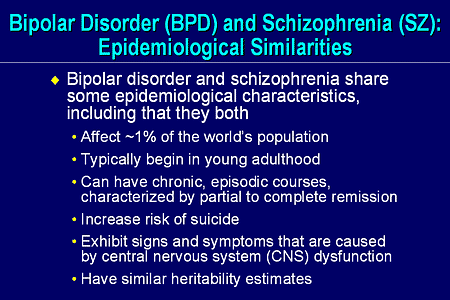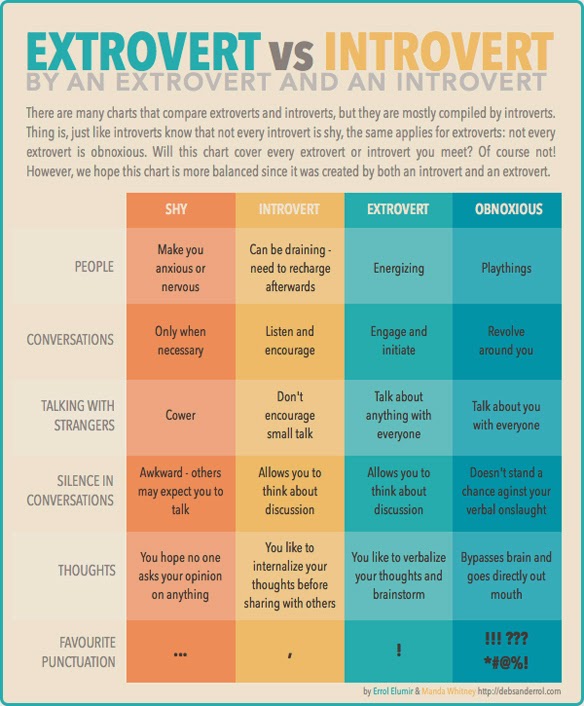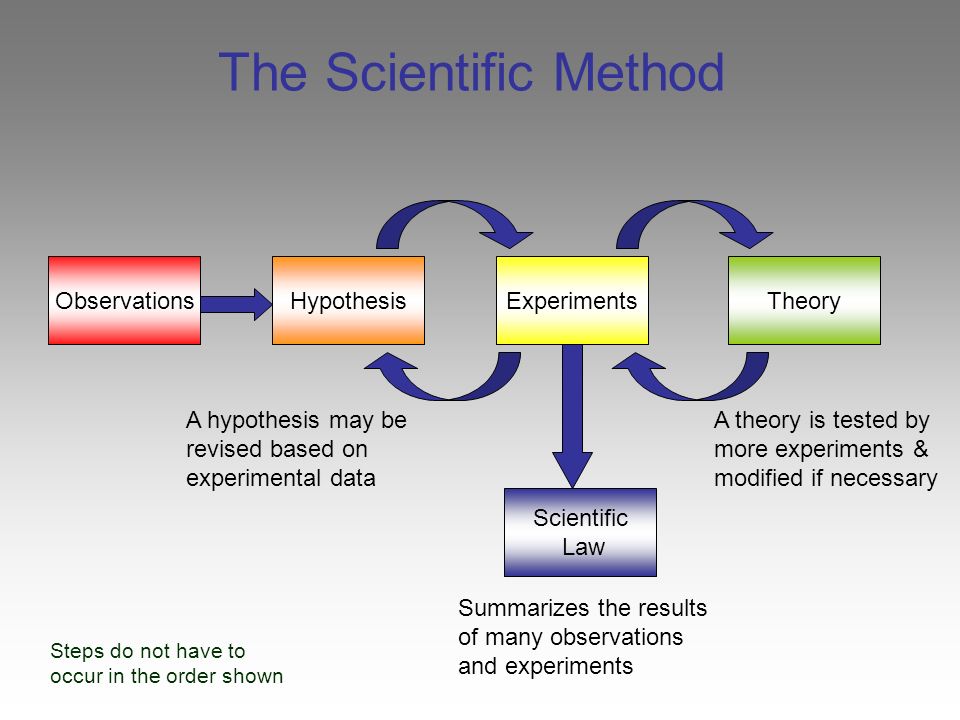Marriage after kids
What Happens to a Marriage After Having Kids
The first year after Lilah was born was a bumpy one for Ben and Taylor. They had to learn how to navigate the new landscape of parenting. More daunting, they had to figure out their marriage, and how to transition from being a couple to being a family.
“Having a newborn changes everything in your life, including your relationship,” says Taylor, a public relations director in San Francisco. “You and your partner are in straight-up survival mode, operating on no sleep and thinking about nurturing your relationship doesn’t even come into it because you are literally fantasizing about sleep the way people fantasize about sex.”
As any parent knows, stress and sleeplessness can extend beyond the newborn phase and put strain on a marriage. Dave and his wife, Julie, struggled with sleep deprivation when their son, Gabe, stopped sleeping through the night when he was between six- and eight-months-old. After sleep training helped resolve that problem, the couple says they essentially “lost a whole year” dealing with a “threenager” when Gabe turned three.
Those difficult stretches, Dave says, don’t make marriage any easier.
It does, however, get better: “The more independent Gabe becomes, the more we can focus on each other and maintain a close connection,” Dave says of Gabe, who’s now nine. “Overall I would say we are closer because now we share two bonds: love for each other and joint love of our son.”
Dave and Taylor both say that having a child ultimately strengthened rather than hurt their marriages. This, however, puts them in the minority. Research concerning what happens to a marriage after having kids has been discouraging to say the least, beginning with E.E. LeMasters’ well-known 1957 study. It found that for 83 percent of couples, the arrival of their first child constitutes a marital “crisis.”
Despite decades of research concluding more or less the same, the issue of whether children help or hurt a marriage is still a matter of debate. A few studies have attempted to contradict LeMasters’ downer of a conclusion, including one in 1975 in which the authors seemed alarmed that the footloose, child-free lifestyle gaining in popularity might have an extreme impact on fertility rates in the U.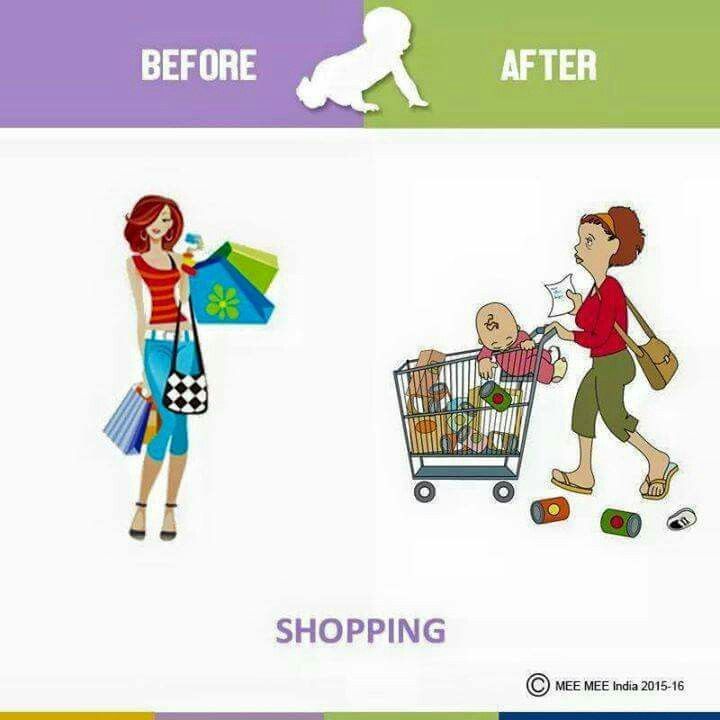 S. University of California, Los Angeles, researcher Judith Blake noted that the women in the study who said they expected to remain childless throughout their lives rose from .04 percent in 1967 to four by 1976. She wrote that although children were no longer economically necessary to a family, they were nevertheless “socially instrumental.” (The alarm seems unwarranted, considering that today’s figures are not much higher: Among women 15 to 44 in the U.S., 7.4 were childless by choice 2011 to 2015, according to the Centers for Disease Control.)
S. University of California, Los Angeles, researcher Judith Blake noted that the women in the study who said they expected to remain childless throughout their lives rose from .04 percent in 1967 to four by 1976. She wrote that although children were no longer economically necessary to a family, they were nevertheless “socially instrumental.” (The alarm seems unwarranted, considering that today’s figures are not much higher: Among women 15 to 44 in the U.S., 7.4 were childless by choice 2011 to 2015, according to the Centers for Disease Control.)
Married people who have kids, in fact, are happier than unmarried people raising children, and their happiness quotient appears to increase with each subsequent child, according to a study published more recently, in 2009.
But, in terms of how kids affect marriage, the negative studies outnumber the positive. The adjustment to parenthood can be even more difficult for black couples, a 1977 study concluded. In general, however, people are less romantic with each other after becoming parents, another study found, and researchers noted in a 2011 paper that despite persistent perceptions that childlessness leads to lonely, meaningless, and unfulfilled lives, most studies suggest child-free people are happier.
In their longitudinal study of first-time parents, University of California, Berkeley, researchers Philip A. Cowan and Carolyn Pape Cowan summarize three broad conclusions that decades of research has suggested for how children negatively impact a marriage: Childbearing and childrearing years are times during which marital satisfaction tends to decline, mothers and fathers are more likely than the childless to experience depression and “…with very few exceptions…studies have shown that couples who have had a first child are less satisfied with their marriages during the first postpartum year than they were in late pregnancy.”
The Cowans’ research suggests that the transition to parenthood is a period of heightened distress for both mothers and fathers. It’s not difficult to imagine how this might strain a marriage.
“Very often, the person who’s the primary caretaker for children gets really involved in the child’s life, and the other person feels jealous,” says Lisa Schuman a licensed clinical social worker in New York City. “As time goes on, that gets harder. The caretaker’s emotional resources are stretched, and if they don’t commit to their partners, the relationship can dissipate.”
“As time goes on, that gets harder. The caretaker’s emotional resources are stretched, and if they don’t commit to their partners, the relationship can dissipate.”
Another common explanation for postpartum strife, as the authors of a 1985 study published in the Journal of Marriage and Family found, are “violated expectations” about parenthood. Researchers had parents fill out questionnaires about their expectations about parenthood and then followed up with the same questions three and six months postpartum. Parents who reported the largest gap between their pre-baby expectations and the realities about parenthood were the least happy. Well-educated parents tended to be less surprised about life after baby and didn’t report the same plunge in life satisfaction after having children.
Mismatched expectations are a plausible contributor to why having children statistically tends to lead to marital dissatisfaction. “However, I don’t think expectations are all of it,” says Brian D. Doss, Ph.D., marriage and family researcher, associate professor of psychology at the University of Miami and author of Reconcilable Differences. “Couples are sleep-deprived, stressed, and putting their relationship on the back burner to care for their infant. They also have to navigate new challenges, decisions, and stressors.”
Doss, Ph.D., marriage and family researcher, associate professor of psychology at the University of Miami and author of Reconcilable Differences. “Couples are sleep-deprived, stressed, and putting their relationship on the back burner to care for their infant. They also have to navigate new challenges, decisions, and stressors.”
Doss followed couples who were married for eight-to-10 years to study the changes in their relationships after they became parents, and the results weren’t pretty: About 90 percent of couples said they felt less happy in their relationships after having a child. Sixty percent said they were less confident they could work through their problems, and many reported lower levels of dedication to their relationships long term. Couples said they also experienced more negative communication and more problems in the relationship after having children.
Relationship researcher Matthew D. Johnson, Ph.D., chair and professor of psychology at Binghamton University in New York has seen similar trends among new parents in his own work.
“I don’t want to be a buzzkill or discourage people from having children, but we need to go into this with our eyes open,” Johnson says. “It’s taxing and vexing — children at any age use lot of resources and leave your depleted.”
What’s more, becoming a parent is a big, sudden shift in identity, as both an individual and part of a couple.
“It’s not so much about being tired, it’s more about identity,” Johnson says. “There is more to do and coordinate and less room for couple-oriented activities.”
The strain on a relationship can increase along with the learning curve for new parents. An incredible amount of focus is required to parent, Johnson says, particularly when parenthood is a completely new experience. As an example, he describes a dad he counseled who thought it was okay to take a nap with his 3-year-old running around the house unsupervised. When the toddler was found nearly dangling out a window, the man’s wife was understandably appalled.
Per Doss, research supports the idea that more parenting education could help a lot of couple’s weather storms and their children. “There is good evidence that interventions focused on improving couples post-birth co-parenting can buffer couples from declines in relationship satisfaction,” he says. “There is also a separate body of work showing that interventions focused on the relationship can also buffer couples from post-birth declines.”
“There is good evidence that interventions focused on improving couples post-birth co-parenting can buffer couples from declines in relationship satisfaction,” he says. “There is also a separate body of work showing that interventions focused on the relationship can also buffer couples from post-birth declines.”
Dave says he “didn’t know what the hell he was doing” when he first became a father but also says he’s skeptical about whether education before Gabe’s birth could have really prepared him for what was to come. Feeling like Julie was the right partner for him, however, was crucial in his decision to even become a parent, he says.
“My guess is that couples who really get closer after the birth of the first baby do a lot of shared co-parenting and have a lot of their identity involved in being a parent, rather than work or other sources of identity,” Doss says when asked why we all know many couples who seem deliriously happy after having a kid despite the dire statistics about becoming parents. “It’s definitely possible, it’s just not the norm.”
“It’s definitely possible, it’s just not the norm.”
In fact, once you get to a certain point in a marriage, kids are more likely to keep couples together, notes Brittany Carswell, Ph.D., a clinical psychologist in Tampa, Florida.
“But couples who get divorced within those first seven years, those are the ones who are falling into the statistics you’re talking about. They just give up,” Carswell says. “Based on [the research of acclaimed relationship expert John Gottman], many of those first-seven-years breakups were due to the adjustments of parenting. I guess that’s because couples are not as committed yet.”
Gottman researchers have also noted philosophical shifts in people’s identity, roles, and values after having children, Carswell says. There are major changes in how couples need to divide their time and deal with conflict as parents. Sex, intimacy, and even conversation tend to decline. And another tendency is for fathers to withdraw.
“All of this psychological and physical adjustment can make people react very differently,” she says. “But another thing we’ve found is that the foundation of a couple’s relationship is very predictive of how they’re going to adjust to the transition. Having a strong friendship and a healthy emotional connection are hugely important in the ability to regulate conflict.”
“But another thing we’ve found is that the foundation of a couple’s relationship is very predictive of how they’re going to adjust to the transition. Having a strong friendship and a healthy emotional connection are hugely important in the ability to regulate conflict.”
Taylor’s friendship with Ben is partly why their relationship has been better since the birth of Lilah, now seven. “It’s really fun for both of us to share our interests with her; that’s been a bonding thing for all of us and good for our marriage,” she says. “Whatever our occasional problems, she’s proof we’re doing something right together.”
The marital dissatisfaction numbers are so high simply because parenting is stressful, per Schuman. “But if we think about it in the context of other things that we do because we have a goal, it’s probably not that different,” she says.
Ask someone in medical school if they’re happy, and chances are they’ll say no, she says. But that doesn’t mean they don’t want to be doctors.
“You’re picking your poison: if you really want a family, you’re going to have to go through the highs and lows,” Schuman says. “But I think the highs are really high. It’s going to be stressful but the goal is worthwhile.”
What happens to marriage after children?
Lifestyle
Credit: iStock.com/RyanJLane
Expectant parents are often warned about how life will change when a baby is born.
They are warned of the lack of sleep.
The sudden decrease in a social life.
The change in their identity.
But vary rarely are they warned about the impact their bundle of joy may have on their relationship.
Being aware of the stresses and how to recognise them, learning to be flexible and resilient and knowing when and where to seek support, can all work to strengthen and stabilise relationships.
“Having a child is one of the most significant milestones for a couple and signifies that the couple are beginning to start a family,” says Matt Garrett, Couple & Family Counsellor and Manager Hunter Relationships Australia NSW.
“Symbolically a child or children represent the ‘union’ between the couple.
“Having said that, undoubtedly having a baby, particularly a first baby, has a significant impact on the couple’s relationship.”
When are children the most stressful on a marriage?
“When you go from a couple to having a baby, that is a very big change,” says Anne Hollonds, Director of the Australian Family Institute of Studies and an experienced psychologist.
“While there are many happy things about it, it can be very challenging.
“In some cases, it can be catastrophic on the relationship.
“It requires significant realignment of the relationship between the two adults and how they relate to each other, to incorporate all the demands of this new baby.
“You think going through the birth is tough, that is nothing compared to the next five or more years and the potential negative effects on your relationship.”
In a 2009 study, researchers surveyed 218 couples over the first eight years of their marriage.
They found that, “the transition to parenthood has a significant impact on marital functioning”.
“For the average couple, these effects were negative, small to medium in magnitude, and consistent across a number of relationship domains.
“Moreover, these effects tended to be sudden and persist over time.”
Matt explains that with the birth of the first child, “it is not uncommon for the couple to feel discombobulated”.
“Intimacy and closeness are less easy to find, and the couple’s sex life is also likely to be disrupted.
“Socialising together is often difficult and the emotional roller coaster that so often accompanies having a baby can reveal sides of the couple that neither of them thought were there.
“It is a huge transformative moment in the life of a couple.”
Anne agrees and says that many hurt feelings, misunderstandings and disagreements can be shoved under the carpet to be dealt with later as the couple tries to simply get through the day on little sleep.
“Because the issues aren’t dealt with, they can re-emerge later as more serious problems, sometimes terminal to the relationship,” she says.
In a complex and increasingly busy world, where the expectations of men and women and couples in a marriage or partnership are less prescribed, it will be important to heed the warning signs of a relationship that is beginning to struggle.
Matt Garrett
Stay up to date with the latest news and articles from First Five Years
Subscribe now
First name
Enter your first name
Enter your emailEnter a valid email
Even though having a baby can be stressful on a relationship, the good news is that divorce statistics suggest that parents are working through those early years.
“The marriage and divorce statistics show that the length of a marriage is starting to get longer than ever before,” says Anne.
Anne explains that with the increasing knowledge of the negative effects of divorce on children, parents are trying to make their marriage work.
“Research has shown that divorce really disrupts children and even adults, and you can spend many years recovering from the impacts of a divorce,” she says.
“So, we are not as likely to move to separation or divorce when we have children than previous decades, especially in those early years of having children, but that is often when the damage is done.
“When you are not facing up to the issues because you are just trying to get through the day, then you might run into trouble later on.”
Does it get easier?
Anne explains that the shift and change in responsibilities when the baby comes along can build a lot of resentment for the primary care giver, most often the mother.
“The mental load is definitely greater on the mother,” says Anne, describing the burden of remembering and then executing tasks required to care for the children and run a household.
“Of course, there have been changes to men’s roles, but the load is definitely still more on the mother.
“Before the baby, it is usually an equal share of responsibilities between the couple, but after the birth, that changes and so much resentment can build from that.”
The Australian Institute of Family Studies has recently published a report which shows the statistical trends in fathers’ employment, for couple and single fathers over recent decades.
Within the report, they show a graph1 which demonstrates the mother's and father's time use up to and after the birth of the first child regarding employment, parenting/childcare and household work. Needless to say, the graph speaks volumes about the change in responsibilities for the mother after the birth of a child.
Matt adds that the primary care giver can feel quite isolated from their usual social events while having the physical and emotional strain of raising a child.
He also explains that the non-primary care giver, usually the father, can also experience hurt as the relationship dynamics change.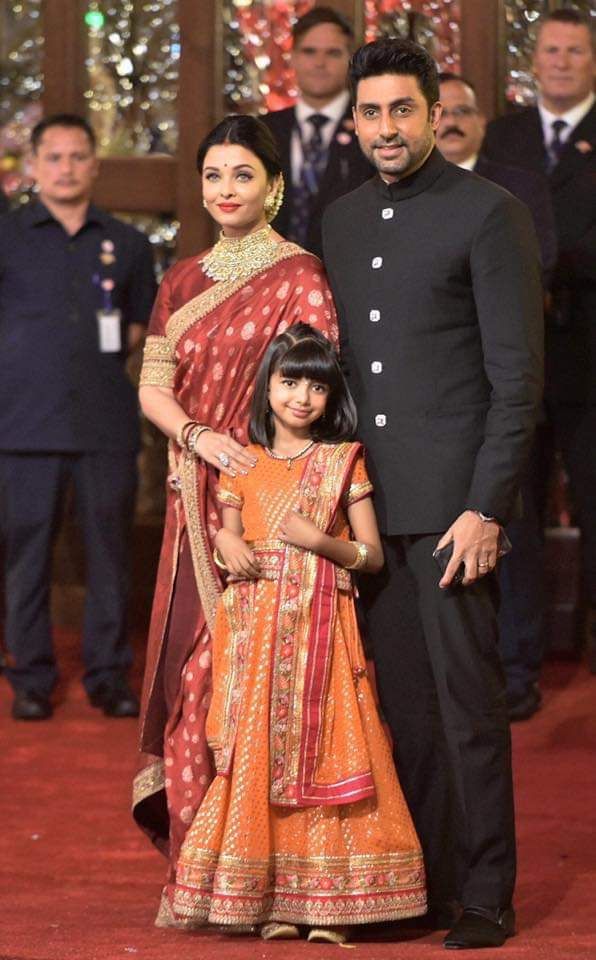
“The non-primary care giver is likely to experience feeling displaced and their needs will often come secondary to the baby and the primary carer,” he says.
“The displaced partner may also feel guilty about expressing their feelings of being neglected as this is rarely anticipated prior to the birth of the baby and runs counter to what is expected in having a child.”
As for it getting easier as the children get older, experts agree that it depends on the family’s circumstance.
Anne says that, “typically by the time the youngest is five, the mother is back at work, at least part time, and there is an enormous amount of juggling that goes on with that”.
Matt explains that once all the children are at school, “life can in fact become even busier, ferrying children to their various out of school events, managing the increasing complexities of their needs as they grow and develop, while incredibly rewarding is also likely to be taxing physically and emotionally for the couple”.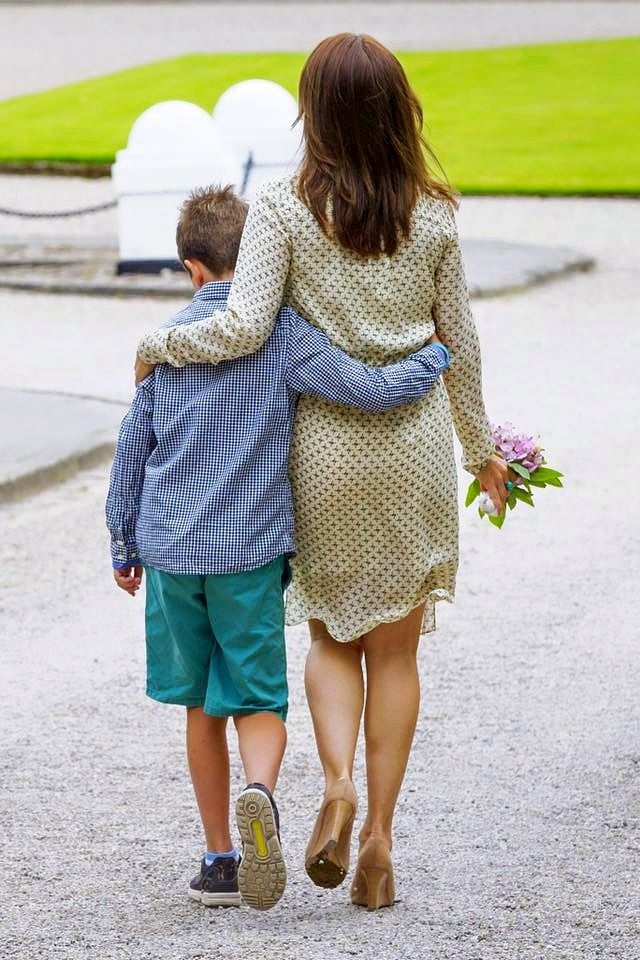
Anne recommends having strong foundations within the relationship to be able to review, discuss and negotiate how parents work together as a team to prevent resentment and problems from escalating.
How to get through it?
“Being able to be flexible and resilient will be the most important skills for the couple to move through this period,” recommends Matt.
Anne adds, “you need to be able to talk about the issues in a way that doesn’t lead to a cycle of blame and hostility – find a way to resolve your disagreements that strengthens your partnership not weakens it”.
Matt recommends couples have time together.
“Maintaining a time where the couple can be together exclusively will be important.”
He adds that, “couples should discover ways they can ensure their love and positive regard for each other can be communicated to each other”.
Anne adds that parents need to understand that their relationship is incredibly important, even though it can sometimes fall to the bottom of the to-do list.
[1] These estimates were derived from unit record data from the Household, Income and Labour Dynamics in Australia (HILDA) Survey. The HILDA Project was initiated and is funded by the Australian Government Department of Social Services (DSS) and is managed by the Melbourne Institute of Applied Economic and Social Research (Melbourne Institute). The findings and views reported in this paper are those of the author and should not be attributed to either DSS or the Melbourne Institute.
Marriage after having children: 4 simple practices to strengthen relationships
Psychology
Marriage After Having Children: 4 Simple Practices to Strengthen Relationships
August 9, 2021 3 340 views
Ekaterina Shchetinina
When we are in love, we rarely think of such things as running a household, raising children, and financial matters. But then we get married (sometimes only after the birth of a child) and suddenly we find ourselves partners: now we have to take care not only of ourselves, but also of the baby, and also somehow cope with everyday affairs.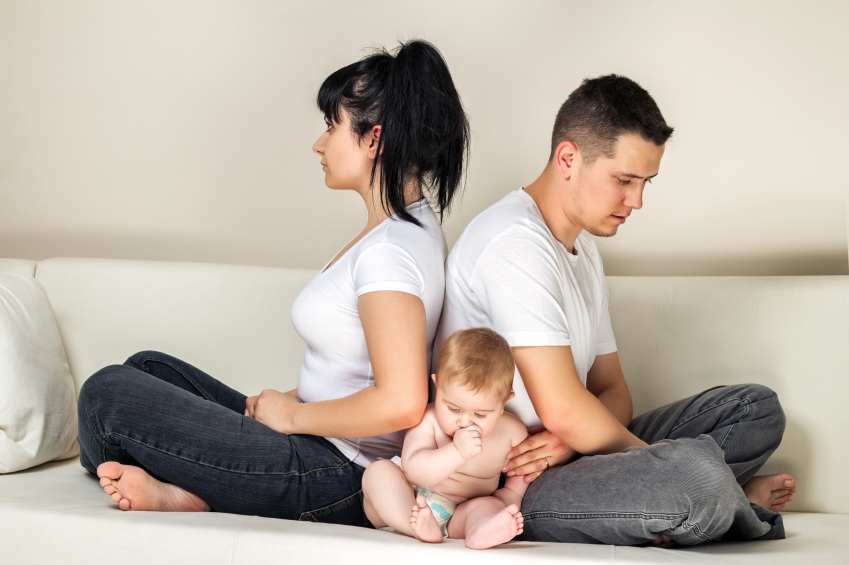 Spouses have little, if any, time for each other.
Spouses have little, if any, time for each other.
In order not to be on the verge of a breakup, the authors of the book "The Magic of the Morning for Couples" Hal Elrod and the Salazars offer simple practices that will help you not only have a good time together, but also create the union of your dreams.
Personal experience
The authors of the book, Lance and Brandi Salazar, themselves went from the blissful life of a newlywed to a discussion of the division of property.
After the birth of their first child, they relegated their relationship to the background: they completely focused on the newborn baby and completely stopped paying attention to each other. They became so distant that they were on the verge of divorce.
Marriage is a painstaking daily work, especially after the birth of children.
Working on relationships and regular practice together helped the couple save their family.
Lance and Brandi Salazar
If your busy schedule doesn't seem like enough time, try spending a few minutes each morning with each other. Four tools for strengthening relationships will help with this.
Four tools for strengthening relationships will help with this.
Tool No. 1. Touch
Touch is very important for the generation and strengthening of love. If the very thought of physical contact makes you feel alienated and uncomfortable, take your time and start small.
You can touch each other casually while doing other things at the same time. But with every small and insignificant touch, you create a huge number of positive mini-moments, and the ratio between good and bad in marriage changes in the right direction.
If you're ready to turn on touch in your morning time together, consider these ways:
- Holding hands, for example, while talking while sitting on the couch, is simple and does not require much effort.
- Sit side by side with your feet on your partner's knees or knees touching. At the very beginning of their practice together, Lance and Brandi meditated sitting cross-legged with one knee touching.
- Hug. For a closer connection, it's nice to spend time together, sometimes snuggle up to each other with your whole body.
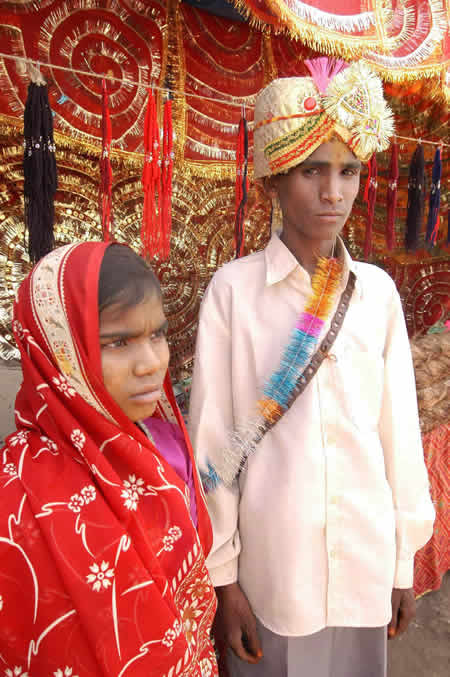
- Stroke each other's cheeks and hair. Of course, this is a more intimate gesture, but incredibly pleasant, and it can even set you up for flirting.
Source
These simple actions become important and meaningful when you do them consciously. Incorporate touch into your overall morning ritual, and over time, you will certainly find that physical contact and even flirting have become commonplace in your relationship.
Tool No. 2. Mutual development
The great thing about mutual development is that you can do it in different ways. For example, watching or listening to educational materials together. You can even stretch the study of one topic for several mornings. Share something important to you with your partner. There are no strict rules here:
- Play book club with each other. Believe me, it's a lot of fun to exchange opinions about a book you read, even about one of its chapters.
- Watch or listen to lectures together.
 Try to choose short videos to leave time for discussion.
Try to choose short videos to leave time for discussion. - Listen to podcasts together. Long ones can be divided into parts and listened to when there is time.
- Get to know each other, strengthening the friendly side of the relationship. Who said that you need to share only new knowledge? To develop a relationship, it is important to get to know your partner better. Ask each other questions about childhood, values, and dreams. This will help strengthen your relationship.
Mutual development significantly improves the quality of communication and positively affects your communication for the rest of the day. The benefits of this practice are endless: you acquire new knowledge and ignite the spark of conversation by teaching your partner.
Tool No. 3. Appreciation
It is very important to start the day with kind words. As in friendship, it will be useful to tell your loved one how much you appreciate him. Do not skimp on gratitude - this is an important component of the friendship side of the relationship and an excellent bridge to another side of them - love.
By focusing on all the good things in your life, you may even feel like a different person.
Source
The following exercises will help you tune in and use appreciation to build a healthy relationship with your partner.
- Think positive. Instead of looking for flaws in your relationship, focus on the best aspects of it. Write down and reread the list several times, and then share with a partner.
- Keep a diary to express gratitude to your partner. This method is especially effective when one of the partners is going through hard times. Mutual expression of appreciation in a couple quickly changes the angle of view, and hard days are filled with love and meaning.
- Remember something good. Why did you decide to marry this person? What attracted you to him then, and what do you appreciate now? What benefit has this relationship brought to you? What difficulties did you overcome together? In difficult times, bad memories erase all positive feelings.
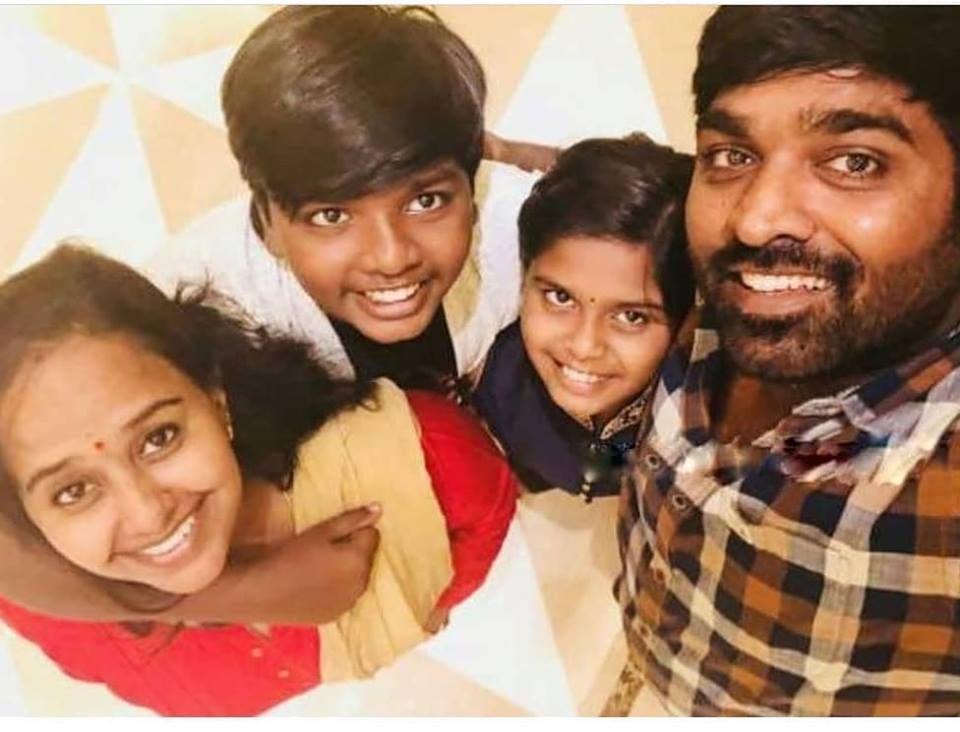 Consciously focusing on the bright moments of life together, you will get rid of bad memories and strengthen a positive attitude.
Consciously focusing on the bright moments of life together, you will get rid of bad memories and strengthen a positive attitude.
Appreciation is a skill that can be developed. Cultivate it, and soon you will certainly receive positive feedback. The main thing is to start.
Tool No. 4. Meetings
The practice of meetings helps keep the right course in a relationship. At such “reconciliations”, you can discuss how things are going, make changes and revise plans, consistently and actively move forward, being honest with each other about what is not working.
Source
A checklist to help organize leisure activities →
In the morning there is not always enough time to talk about important things, so regular meetings every week are so necessary. For example, you might meet on Sundays to discuss your goals and schedule for the week.
Meetings are an excellent environment for improving communication skills with a partner. Don't be discouraged if things don't go smoothly, especially if these discussions are new to both of you. Try to be lenient and remind each other that it takes a lot of practice and repetition to develop any new skill.
Don't be discouraged if things don't go smoothly, especially if these discussions are new to both of you. Try to be lenient and remind each other that it takes a lot of practice and repetition to develop any new skill.
Each couple has their own daily routine, experiment to find the best option for yourself. You can reschedule practices to a later time, for example, in the evening. And on days when time is short, try to combine them. This works great too. The main thing is to spend your joint minutes consciously, without being distracted by anything.
Based on The Magic of the Morning for Couples
Cover: unsplash.com
Children and remarriage of parents
Remarriage, especially after a difficult separation, is always a difficult choice for an adult. And for a child, this is a completely new world, which in his eyes immediately looks frightening and dangerous. After all, now it seems to him that mom or dad will love him less, paying attention to another person. Today we will talk about how to avoid possible mistakes, tune in the right way and create a warm and friendly atmosphere in a new family with Elena Kandybina, a child and family psychologist, a psychologist working with parents of the Here and Now Charitable Foundation.
Today we will talk about how to avoid possible mistakes, tune in the right way and create a warm and friendly atmosphere in a new family with Elena Kandybina, a child and family psychologist, a psychologist working with parents of the Here and Now Charitable Foundation.
It's no secret that many women are afraid to start a family again, because they don't know how the relationship between their chosen ones and children will develop. Some even say that they will not marry: for the sake of the child's peace of mind. Why is this happening?
Often women who stay with children after a divorce have such a negative experience of a previous family life, or perhaps memories from their own childhood experiences, that they do not want to think about remarriage. In their ideas, a new man who enters the family becomes a potential danger to children only because these children are not his relatives. This is largely due to the views that, unfortunately, are often found in modern Russian culture, when we are faced with a dismissive and sometimes offensive attitude towards a divorced woman, especially with children.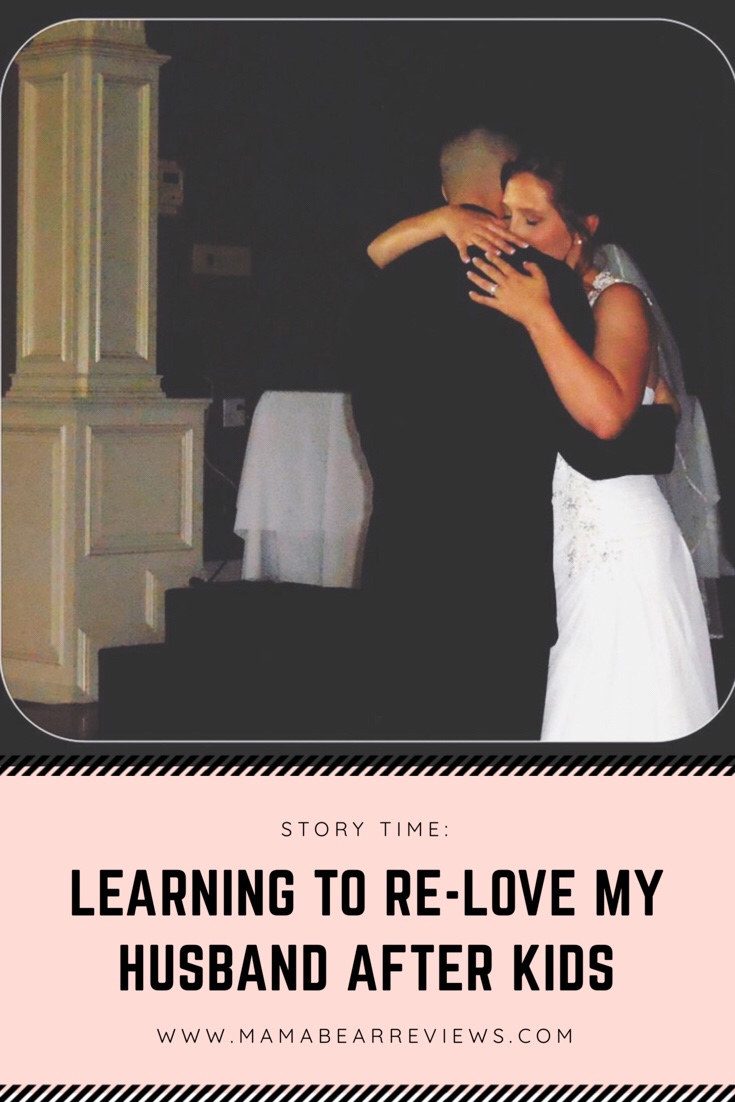 The words "a divorcee with a trailer" can still be heard even from educated people. One often hears the opinion that a man who marries a woman with a child has almost accomplished a feat and the fact of such an act requires respect. In addition, there is always a risk of meeting a dishonorable or even aggressive person. You do not need to be afraid to create a new family, but you need to be very careful when choosing a partner for remarriage.
The words "a divorcee with a trailer" can still be heard even from educated people. One often hears the opinion that a man who marries a woman with a child has almost accomplished a feat and the fact of such an act requires respect. In addition, there is always a risk of meeting a dishonorable or even aggressive person. You do not need to be afraid to create a new family, but you need to be very careful when choosing a partner for remarriage.
Are there any "bells" in the partner's behavior that should alert you right away?
It is impossible to accurately predict how the relationship between the children and the new parent will develop. Moreover, even if a married couple has been raising a child since birth, then parent-child relationships can change and be difficult in some periods, and benevolent and warm in others.
At the stage of acquaintance of children and a new partner, it is worth paying attention to how friendly he is to the child, ready to take into account his needs, whether he is interested in the life of the child.

One should be wary if the partner, already at the stage of courtship, is offended by the child's behavior or constantly points out shortcomings. It seems that such a person wants to shift the responsibility for the lack of dialogue with the child to others, and leaves himself only the right to criticize and resent. Living with him can be difficult.
It is also worth paying attention if the new family member behaves very categorically, does not seek compromises, does not accept objections and does something that concerns all family members without any discussion with them. The situation can become more complicated if parents have different views on education and it is difficult for them to discuss them, to come to some kind of common decision. It happens that an adult (male or female) is not ready to take responsibility for communicating with the children of the other half, but, on the contrary, requires unconditional obedience and complete agreement with the rules, perhaps completely new for the child.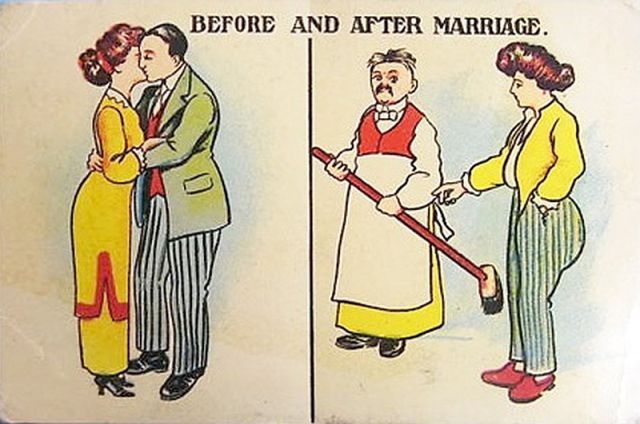 In such cases, perhaps, it is worth lingering at the courtship stage and seeing if it will be possible to negotiate and take into account common interests in alliance with such a person. If already now he considers his demands mandatory, then will he turn into a tyrant when the relationship is formalized? Is he ready to reckon with desires that he does not like too much? How will he act when opinions do not agree, is he even able to talk about it in a friendly way?
In such cases, perhaps, it is worth lingering at the courtship stage and seeing if it will be possible to negotiate and take into account common interests in alliance with such a person. If already now he considers his demands mandatory, then will he turn into a tyrant when the relationship is formalized? Is he ready to reckon with desires that he does not like too much? How will he act when opinions do not agree, is he even able to talk about it in a friendly way?
And of course, you should consider ending the relationship if the other person in the couple is aggressive, emotionally or physically abusive, talks about such events in the past, speaks favorably about facts of violence or people who are prone to violence.
How to introduce a child to a new chosen one? And how to tell that you are going to start a family?
It is better to postpone the acquaintance of the child and the proposed new family member until the moment when both partners think about living together.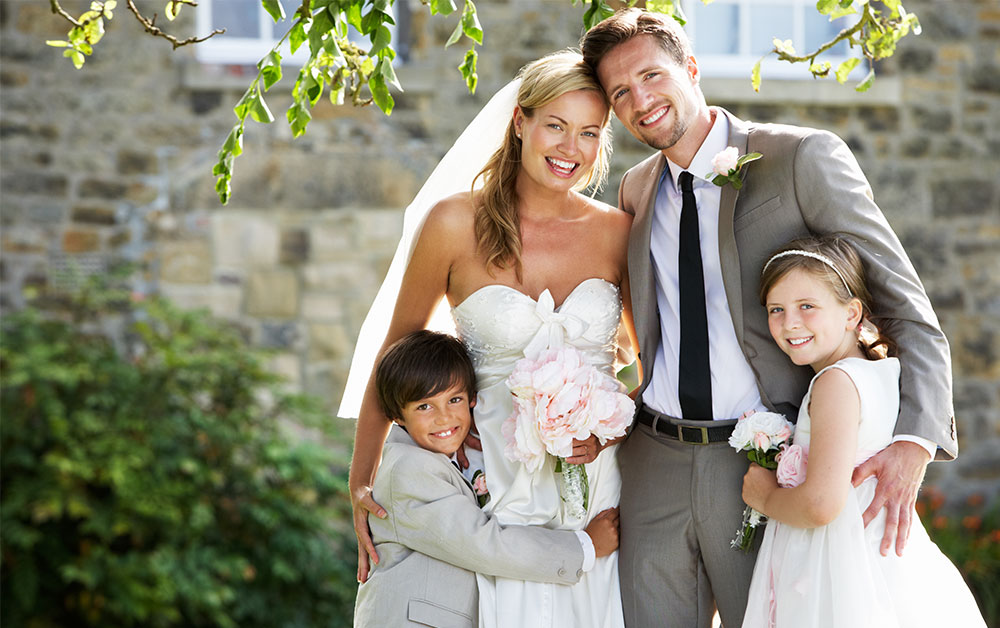 There is no particular place to meet - it all depends on the lifestyle of the family, the activities they love, and the places they go to with pleasure. It can be a trip to the country, and a visit to the zoo, and a homemade dinner. It is important that at this moment everyone has the opportunity to communicate with pleasure and have an interesting time. Such an event will allow you to see how much a man is ready to take into account the interests of both the woman and the child, and his own too. It is better if the first meeting is not very long. And only then it will be possible to leave together for several days or even weeks. And of course, it is impossible to draw a final conclusion after a single meeting. It is worth spending a few months on family activities before deciding to live together.
There is no particular place to meet - it all depends on the lifestyle of the family, the activities they love, and the places they go to with pleasure. It can be a trip to the country, and a visit to the zoo, and a homemade dinner. It is important that at this moment everyone has the opportunity to communicate with pleasure and have an interesting time. Such an event will allow you to see how much a man is ready to take into account the interests of both the woman and the child, and his own too. It is better if the first meeting is not very long. And only then it will be possible to leave together for several days or even weeks. And of course, it is impossible to draw a final conclusion after a single meeting. It is worth spending a few months on family activities before deciding to live together.
What should I do if a child constantly compares his stepfather or stepmother with his father or mother?
Of course, if the divorce was recent or the child's relationship with his parents who left the family is very close, then the comparison is inevitable. For a child, the person whom he has known for a long time, with whom pleasant memories and warm relations are associated, will be much closer. Mom's or dad's new partner is perceived as a competitor and can be annoying. You should not argue with the child and prove to him that the new adult does everything better. It is much more convenient to find such joint activities where they can do something together, enjoy communication and thus build a warm and supportive relationship.
For a child, the person whom he has known for a long time, with whom pleasant memories and warm relations are associated, will be much closer. Mom's or dad's new partner is perceived as a competitor and can be annoying. You should not argue with the child and prove to him that the new adult does everything better. It is much more convenient to find such joint activities where they can do something together, enjoy communication and thus build a warm and supportive relationship.
It is very important to remember that the responsibility for building relationships lies primarily with an adult. Do not wait for the initiative from the child. On the contrary, it is necessary for an adult to show it, to look for something that would be interesting to both, to make relationships trusting, even if it is sometimes difficult. This does not mean at all that it is necessary to endure aggression or boorish antics, but it is the adult who should look for a way out of the situation and be the one who is more important to establish contact.
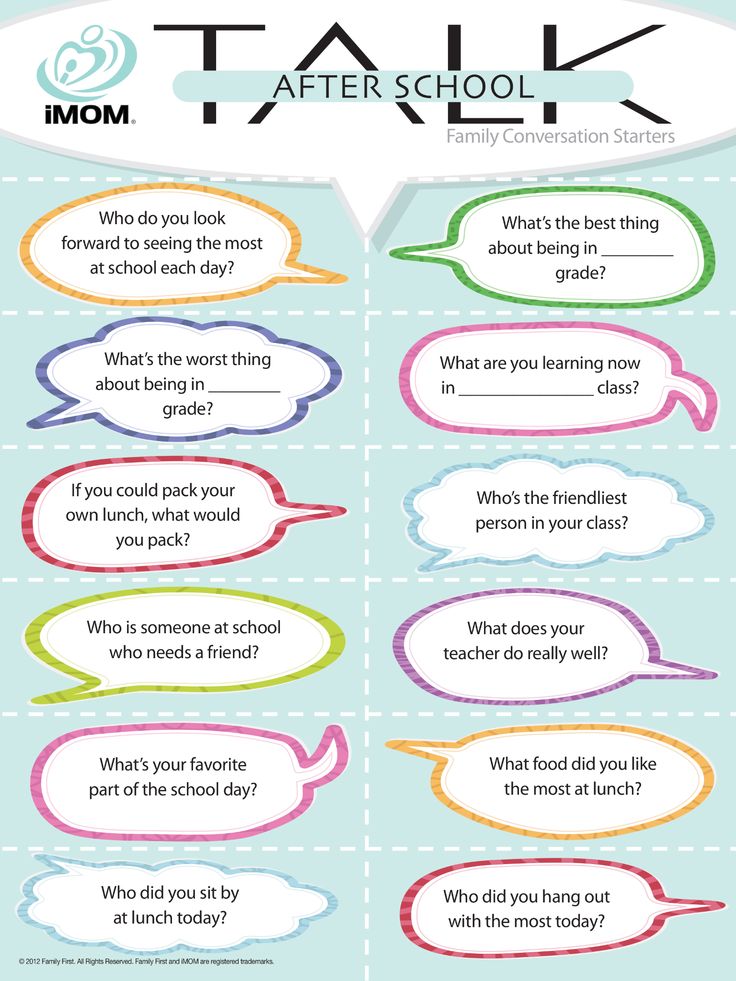
Do not confuse a partner's sincere interest in the child and his inner world and "buying" a good relationship through toys and entertainment. In the latter case, the child will quickly realize that he is not interested in an adult, but will learn to “trade” obedience. You should not encourage such interaction, it is better to help find something that attracts a partner in activities with the child.
Is it necessary to somehow deal with jealousy and constant attraction of attention?
In a new marriage, it is important to devote time to the child, too. It should not be only those classes that are held under the motto "must be done", for example, lessons. Set aside time (for example, for a preschooler - every day, for a younger student - every other day) when mom or dad is doing something interesting for him with the child: playing board games, watching cartoons together, going somewhere for joint leisure. The child begins to be jealous and attract attention if he is not sure that there will be time for him.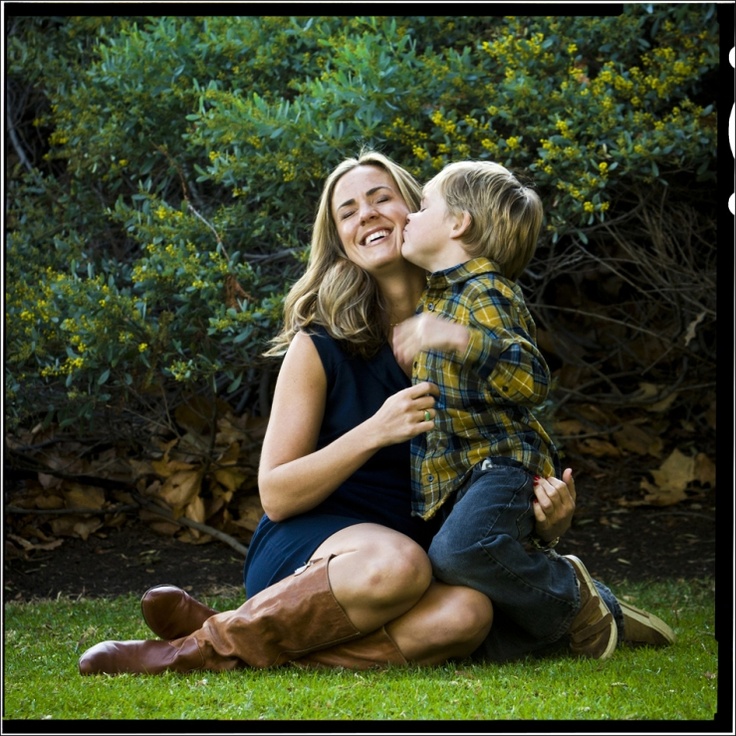 If he knows for sure that an hour a day is “his time”, then he will become calmer.
If he knows for sure that an hour a day is “his time”, then he will become calmer.
What if you are not satisfied with the way your new husband/wife is raised? Or, on the contrary, if your methods do not suit you?
Although we usually believe that within the framework of a single culture we all live the same way, but, of course, this is not so. In different families, even very close in spirit and social status, there are somewhat different requirements, it is customary to treat certain events differently. Indeed, what difference does it make: wash dishes immediately after eating or put them in the dishwasher, iron bed linen or not, dine in the kitchen or in the room in front of the TV. We often do not pay attention to such things, but when a new person comes to the family, then every little thing can matter.
Let changes in rules and traditions be gradual for the child. The new family is a place where both adults have a say, meaning a new rule only comes into being when both agree. And if the mother sees that the changes are painful for the child, then it is worth slowing down and maintaining the old order for now.
And if the mother sees that the changes are painful for the child, then it is worth slowing down and maintaining the old order for now.
It often happens that a mother or father, grandmother or grandfather literally turns a child against a new family member. What to do in such a situation?
If other adults with whom the child communicates set him against a new family member, then it is important not to drag the child into disagreements between adults. You can talk among yourselves about being unhappy with the current situation, but be prepared that this will not bring the desired result. We are far from always able to convince an adult person, to force him to act differently. If you are too persistent or start to threaten, you will most likely achieve a negative result.
In the conflict of adults, the most important thing is to try to keep this conflict only between adults, protecting children from it as much as possible.
For example, a child can be told that her grandmother does not like her mother's new husband, but she has the right to her opinion.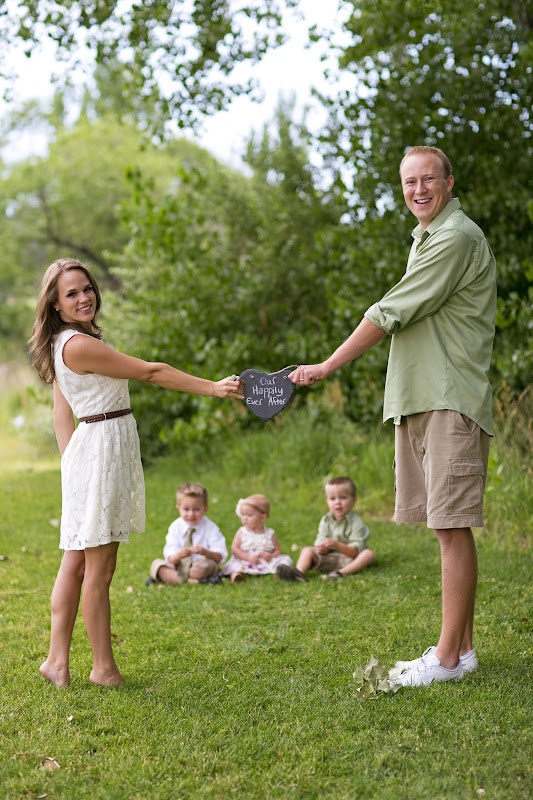 It is important that mother and child feel good with him. And here you can talk about how the life of the child himself has changed for the better with the advent of a new family member.
It is important that mother and child feel good with him. And here you can talk about how the life of the child himself has changed for the better with the advent of a new family member.
Should a child be asked to "make friends" with a new sibling? And what if their relationship doesn't work out?
After all, friendship is a relationship that cannot be built by force. The siblings can be asked to respect each other's boundaries, maybe to do things together, such as participating in a shared cleaning or other household chores. But whether they make friends or not depends on many different factors, such as character, interests, and even temperament. We can foster friendships by helping them create relationships where each can bring out their strengths and thus support the other. But this doesn't always work out. Do not be upset: blood brothers and sisters are also not always friends and girlfriends. Mutual respect will suffice.
What if, in remarriage, the husband or wife asks the child to call them dad or mom?
It can be difficult for a child, especially if they are older than 5 years, to call a new person that.
